Elefante Blanco (White Elephant)
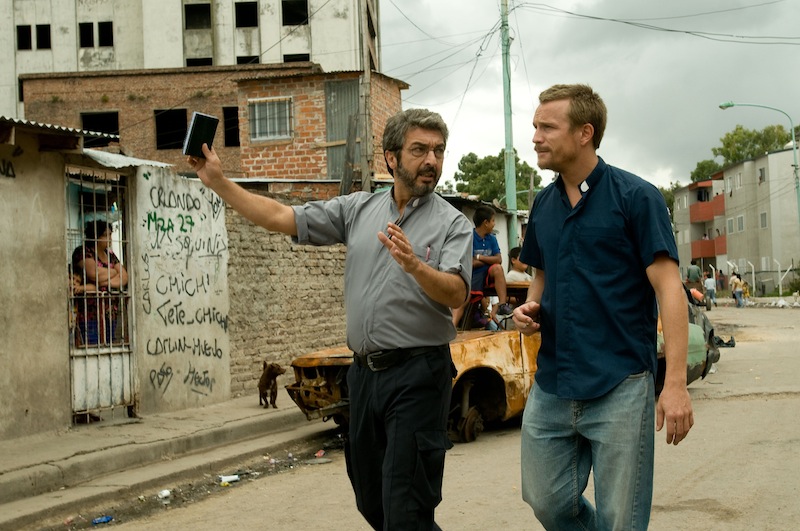
Argentinian director, writer and producer Pablo Trapero’s new full-feature, Elefante Blanco, depicting the hardships of over 30,000 residents of “Villa Virgin”, a shantytown in the slums of Buenos Aires, seems very much a Berlinale type of film — dealing with moral issues of serving God and politics of fighting poverty, the film lacks the poetic air and fairytale-like glamour of the other features presented in this year’s Un Certain Regard section. However it is by no means a drawback — thanks to the exceptionally sensitive cinematographic eye of Guillermo Nieto, the film manages to render the width that the story sets out to grasp, and skilfully fluctuates between the realms of the public and the personal.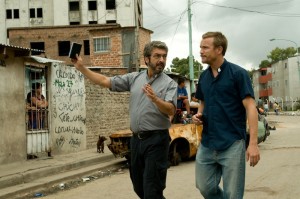
Set in “the Hidden City”, Elefante Blanco takes off with a real case of Father Carlos Mujica, a shantytown priest and Marxist activist who was shot dead in 1974 and is now replaced by two long-standing friends — Julian (Ricardo Darín, The Secret in Their Eyes) and Nicolas (Jérémie Renier, Dardenne brothers’ favourite). After having survived a massacre at the village project he was previously working on, Father Nicolas comes to the slums filled with guilt and determined to return his gratitude to God by helping his spiritual leader and inspiration Julian to finish building a hospital. Deeply troubled, he finds comfort with Luciana (Martina Gusmán), a vivid, hyper-efficient and very attractive atheist social worker.
Their mutual attraction is impossible to ignore, and Nicolas commits a sin by initiating a sexual relationship in a beautifully played out and realistically intimate sex scene. As his faith weakens, tension and violence between the slum’s drug-dealing cartels and corrupt police keeps growing while hopes to finally accomplish the hospital project are diminishing with the lack of funding from the government. Father Julian finds it harder and harder to fight for the poor, after having been diagnosed to soon die from a brain disease. When the building works are halted by ministerial decree, the fuse is lit, and the town rises for an open-fire protest, which calls to mind scenes from City Of God and Rebelle.
Elefante Blanco offers a good study of how psychologically difficult it is to do good in the conditions where your work is not appreciated, where the day-to-day fight to serve God and people seems meaningless and takes a lot of inner motivation, willpower and determination to continue. Renier gives a heartfelt performance, well balanced with Gusman’s vigor and Darin’s solemn authority. However, the set-up sequence might seem a little lengthy and the action too exaggerated — sparking drama between the police, drug addicts and sellers with no given reason ever too often. In the end, it is the impeccable cinematography that makes Elefante Blanco worth watching.
Ruta Buciunaite
Watch the trailer of Elefante Blanco here

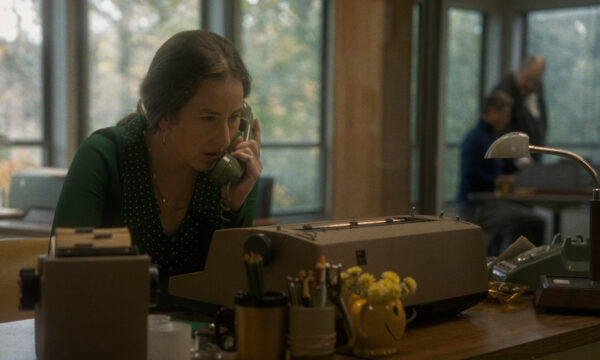

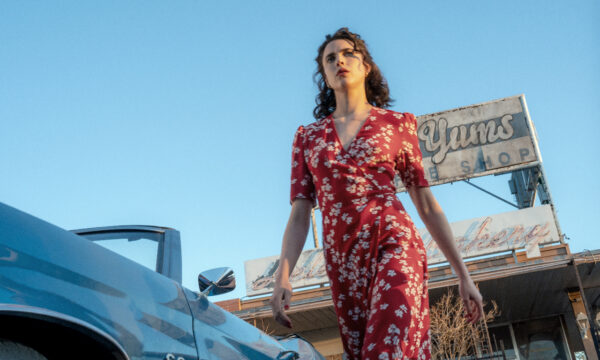
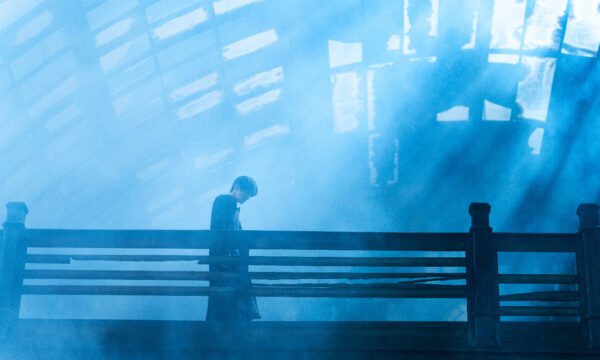
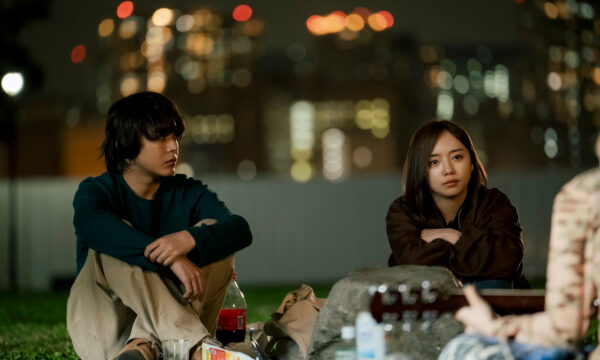
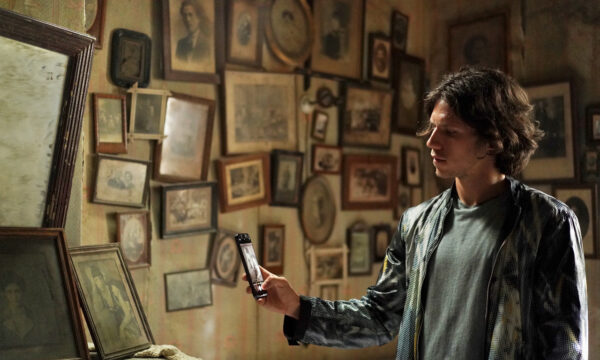
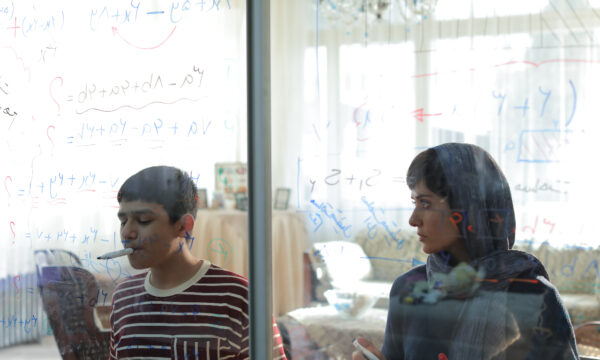
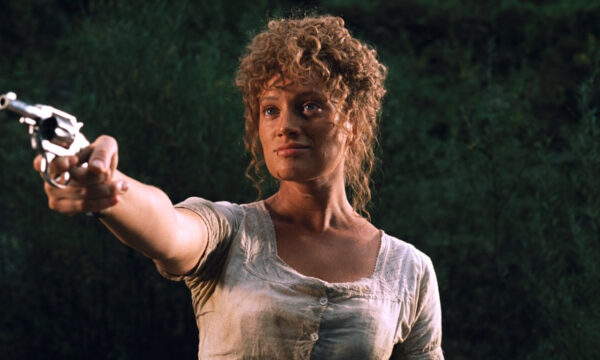
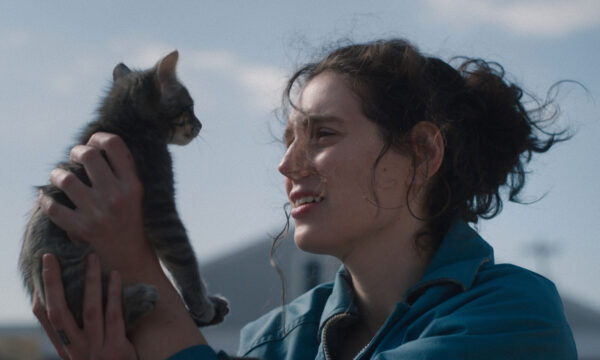
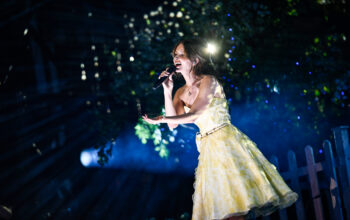
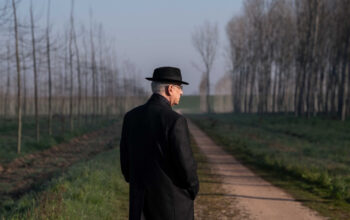













Facebook
Twitter
Instagram
YouTube
RSS